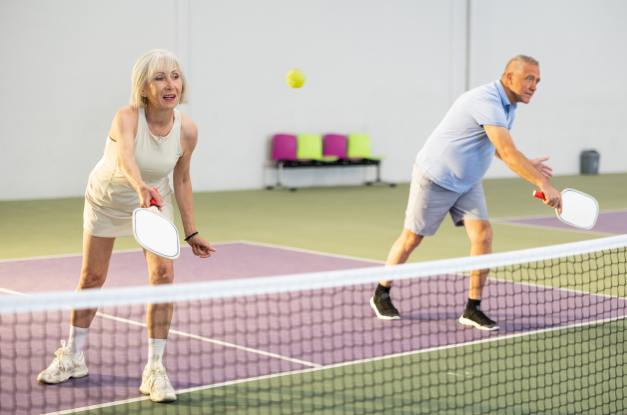Many people assume their athletic days are behind them once they hit their golden years. This belief couldn’t be further from the truth. Sports and physical activities offer unique benefits that become even more valuable as we age, from protecting bone density to keeping our minds sharp.
Physical Benefits That Keep You Strong
Regular sports participation helps maintain muscle mass, which naturally decreases as we age. Therefore, it’s important to play sports in retirement, like tennis, swimming, or even recreational baseball, to keep your heart pumping and your joints moving. The repetitive movements involved in most sports also improve balance and coordination—crucial factors in preventing falls.
Weight-bearing activities strengthen bones, reducing your risk of osteoporosis. Even low-impact sports like golf provide enough resistance to maintain bone health while being gentle on aging joints.
Mental and Social Advantages
Team sports also introduce you to like-minded people who share your interests. These relationships often extend beyond the playing field, creating lasting friendships that combat the loneliness many retirees experience.
Sports also provide structure to your days. Having practices, games, or regular playing sessions gives you something to look forward to and helps maintain a sense of purpose. The mental stimulation of learning new skills or strategies keeps your brain engaged and may help prevent cognitive decline.
Getting Started: Easy Sports for Beginners
You don’t need expensive equipment or years of experience to jump back into sports. Baseball, for instance, requires minimal gear to participate. If you’re considering baseball or softball leagues, choosing the right bat can make all the difference in your comfort and performance on the field.
You can also start with low-impact options like walking groups, swimming, or senior-friendly tennis. Many communities offer modified versions of traditional sports that accommodate different fitness levels and physical limitations. Pickleball has exploded in popularity among seniors because it’s easier on the knees than tennis, but still provides great exercise and social interaction.
Making It Sustainable
The key to long-term success lies in choosing activities you genuinely enjoy. Don’t force yourself into high-intensity sports if you prefer gentler movements. Consistency matters more than intensity at this stage of life.
Listen to your body and don’t hesitate to modify activities as needed. Using proper equipment, warming up adequately, and staying hydrated have become increasingly important as we age.
Your Next Chapter Starts Now
Playing sports in retirement isn’t about reliving your glory days—it’s about creating new ones. Whether you’re picking up a racquet for the first time in decades or trying something completely new, the benefits extend far beyond the scoreboard.
Start small, stay consistent, and remember that every active day is an investment in your future health and happiness. Your retirement years can be some of your most active yet.






